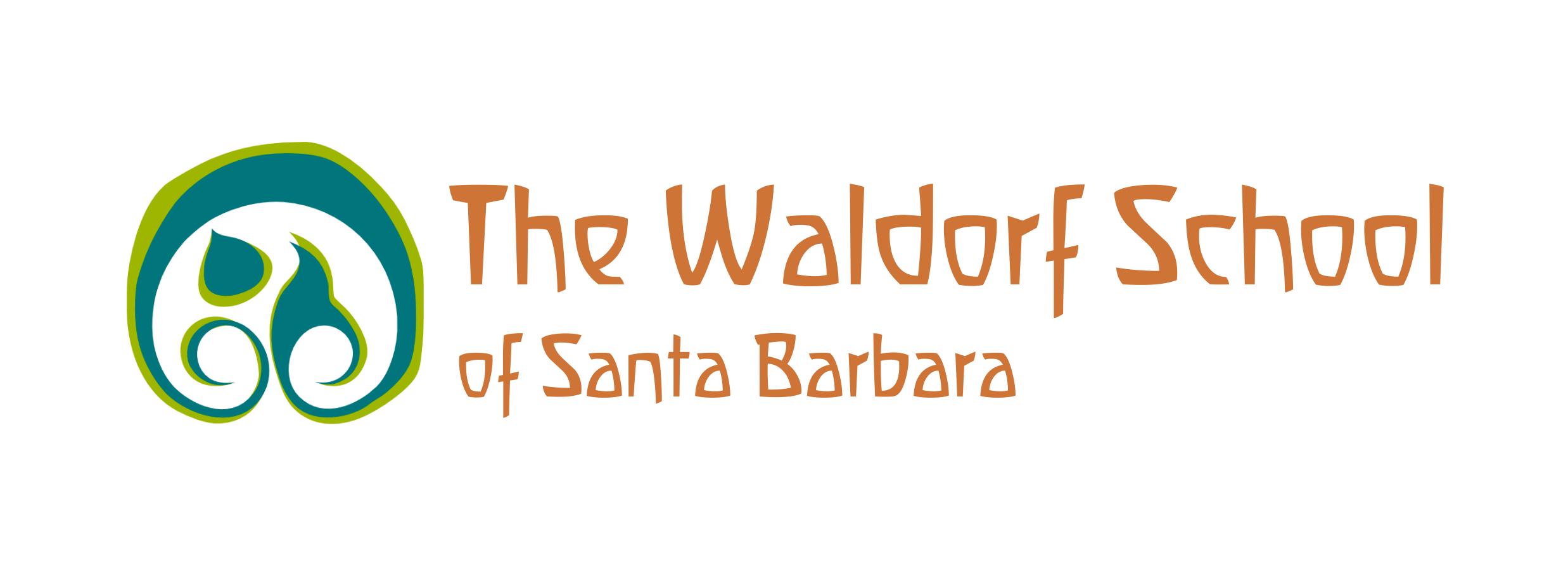Cararocka
Dear Member of The Waldorf School of Santa Barbara Community,
Recently a kindergartener asked a question that stopped me.
“There’s no such thing as a villain, right?”
We are standing under the oak in front of school amidst the swirl of afternoon pickup, his freckled face gazing upwards. He is squinting, his mouth slightly open. And he is worried. Hearing worry about such a question in a four year old is haunting.
“No,” I respond, trying to sound calm and light. “There are no villains. Not really. There are confused people and those who are less confused.”
Greg Boyle, founder of the largest and most successful gang-intervention program in the world, a man whose quality of mercy is not strained even around folks who’ve committed the most heinous acts, put it differently: “People aren’t villains; they’re just those who are strangers to their own goodness.”
In the face of overwhelming, bewildering circumstance -- great personal suffering or great collective suffering or both -- we humans often thirst for simple answers, for clear understanding, for control. In the face of overwhelming, bewildering experience, we humans tend to put reality into a Procrustean Bed, reducing it to a tidy storyline, a cut-and-dried stance. And often we do this at the expense of the chiaroscuro complexity of things, at the expense of self-scrutiny, at the expense of heart.
Says writer and Franciscan priest Richard Rohr, “If we do not transform our pain, we will always transmit it.” Again and again, Rohr counsels us to process our stuff, to hold our suffering consciously and carefully, and not project it elsewhere. He carries the electricity metaphor even further: “Most people are like electric wires: what comes in is what goes out. Someone calls us a name, and we call them a name back. That is, most people pass on the same energy that is given to them. Now compare an electric wire to those big, gray transformers that you see on utility poles. Dangerous current or voltage comes in, but something happens inside that gray box and what comes out is, in fact, now helpful and productive.”
For the sake of the children, can we strive to be not relay stations but transformers? Can we see with Martin Luther King Jr. that “we can no longer afford to worship the god of hate or bow before the altar of retaliation”? For the sake of the children, can we see the plain ham-fistedness and untruth of seeing people as good or bad, heroes or villains? (William Blake, bluntly and impishly: “To Generalize is to be an Idiot. To Particularize is the Alone Distinction of Merit.”) For the sake of the children, can we help midwife a world -- borrowing again from Greg Boyle -- of “extravagant tenderness”?
Such work is not easy, of course. Makes bumbling baffled amateurs of all of us. But still it needs our doing. Because the children and the world they inhabit are so unutterably holy and beautiful.
A stray example: around the time the kindergartener fretted over the existence of villains, a first grader -- we were inside her classroom -- posed me a different sort of question.
“If another fruit washed in from the sea, what would you name it?”
“Washed in from the sea? What do you mean?”
“If another fruit was born,” she clarifies, “what would you call it?”
Before I can properly answer, she says “Cararocka. That’s what I would call it. ”
“That’s a good name,” I admit.
We stand there a while in silence. Outside white seed puffs from the willow blow across the playground like snow.
“It would be the size of a peach,” she explains. “But blue on the outside and purplish on the inside. Like a big berry. And really yummy.”
“Tropical?”
“No. Like a big berry.”
Then she walks over to the window to better see the floating seeds, and she gets so close to the pane that she mists the glass with her breath.
In gratitude,
The WSSB Admin Team
PS The thought of the day is from Martin Luther King Jr. (from his Riverside Church speech in 1967):
“This call for a worldwide fellowship that lifts neighborly concern beyond one's tribe, race, class, and nation is in reality a call for an all-embracing -- embracing and unconditional love for all mankind. This oft misunderstood, this oft misinterpreted concept, so readily dismissed by the Nietzsches of the world as a weak and cowardly force, has now become an absolute necessity for the survival of man. When I speak of love I am not speaking of some sentimental and weak response. I am not speaking of that force which is just emotional bosh. I am speaking of that force which all of the great religions have seen as the supreme unifying principle of life. Love is somehow the key that unlocks the door which leads to ultimate reality. This Hindu-Muslim-Christian-Jewish-Buddhist belief about ultimate -- ultimate reality is beautifully summed up in the first epistle of Saint John: ‘Let us love one another, for love is God. And every one that loveth is born of God and knoweth God. He that loveth not knoweth not God, for God is love.’ ‘If we love one another, God dwelleth in us and his love is perfected in us.’ Let us hope that this spirit will become the order of the day. We can no longer afford to worship the god of hate or bow before the altar of retaliation.”
